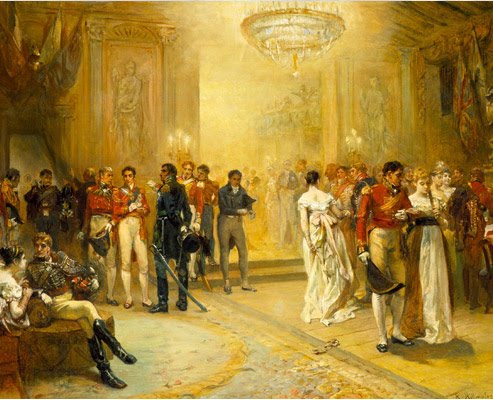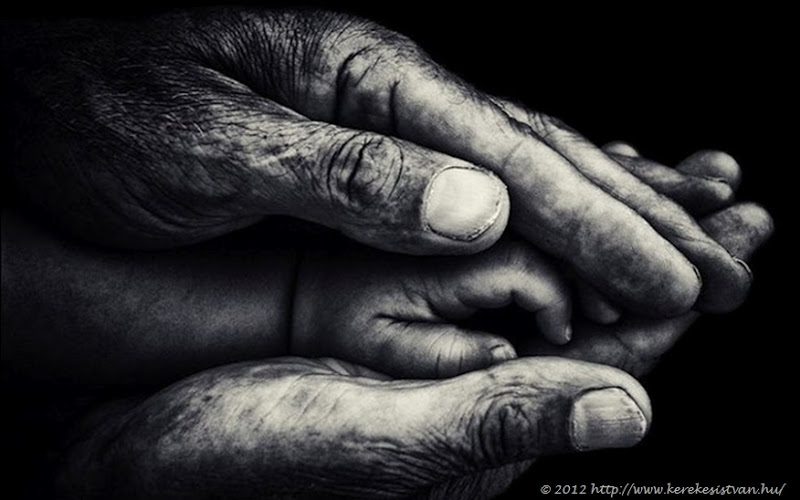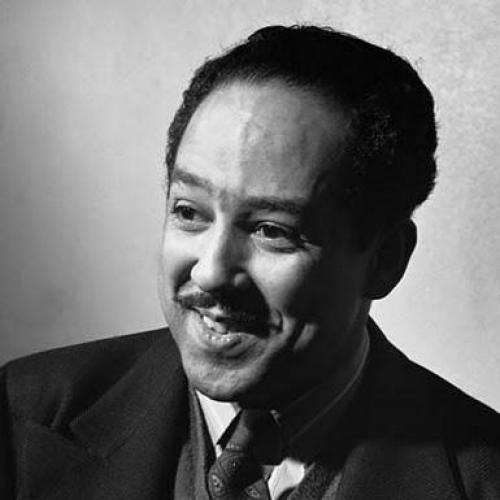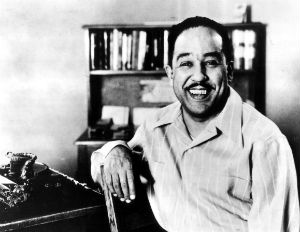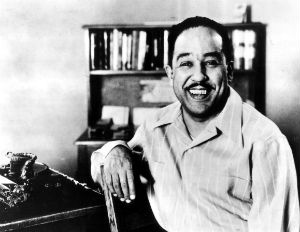The Gift: Analysis
A transcendent poem on motivation and kindness, ‘The Gift’ achieves that unique outlook of a spiritual holism. The poem takes a holistic approach towards healing, be it physical or spiritual. The poem is tender in its portrayal of a father-son relationship.
On the literal level, the poem describes a memory where the poet was hurt, and his father had eased the pain that left him reverential of his father. Later on, he does the same thing in the hour of his wife’s need. He attends to her the same way his father had attended to him. The healing that takes place is physical.
On the metaphorical level, the wound can be read as a psychological or a spiritual wound that needs healing. The poem is an allegory of the spiritual crisis we all face. The poet wishes to impart that all non-physical wounds can also be healed with a touch of kindness, sensitivity, and hope. It is this hope that perhaps his father had planted in him, which he, in turn, offers to his wife.
The poem is as much about hope as it is about death. The poet wants to make us aware that death is always around the corner and that it can visit anyone, anywhere, but that shouldn’t injure one’s spirit. A few gestures of tenderness can become a beacon of light, a tiny flame in times of despair. It is interesting to note that a certain aspect of innocence is brought to light in this poem. The poet uses sophisticated and poetic quotes (‘Metal that will bury me’; ‘Ore Going Deep for My Heart’; etc.) to negate them. He points out that the child neither cares for lofty diction nor sophisticated thoughts when hurt or given a gift; the child’s first impulse is to kiss the parent figure, in this case, the father who had gifted him hope and comforted him in his time of pain.
The Gift: Annotations
Stanza 1
‘sliver’- a tiny or a thin, narrow piece of something.
Stanza 2
‘but hear his voice still, a well/of dark water, a prayer’ – This expression indicates the deep voice of the poet’s father. The word ‘dark’ emphasizes the richness of the healing voice. The voice is also compared to a prayer, which indicates the tender and compassionate tone of the voice.
‘two measures of tenderness’ – This is an allusion to the two hands of the Father. The two hands symbolize tenderness and kindness.
‘flames of discipline’- It probably means the rules that discipline and govern our lives. It could indicate that the flames, the edicts of discipline, are presented to the son by his father’s gestures.
Stanza 3
‘a silver tear’- The metal splinter. The father takes out the splinter lays it on the boy’s palm. It gives one the semblance of a silver tear, probably because the splinter was of silver or metallic color.
‘a tiny flame’- This also refers to the metal splinter taken out of the boy’s hand. The metallic finish of the splinter probably caused it to glisten and give the semblance of a tiny flame.
Stanza 4
‘thumbnail’- The nail of the thumb. The poet’s wife probably had a splinter lodged in her thumb.
‘Metal that will bury me’- Simply put, this means the metal could have killed the poet. A cut from a metallic object can cause tetanus and is fatal.
‘Little Assassin’- The name that the poet gives to the metallic shard. An assassin is a designated killer of a higher order.
‘Ore Going Deep for My Heart’- The ‘ore’ here refers to the metal shard. It means that the splinter had the potential to stop his heart, in short, to kill him.
The Gift: Poetic Devices
Stanza 1
No such poetic devices are used in stanza 1.
Stanza 2
‘a well of dark water’- this is an instance of metaphor. The expression represents the depth of the father’s voice by comparing it with a dark well of water. The well indicates depth.
‘a prayer’- This too is an instance of metaphor. The voice of the poet’s father had a certain quality about it, a sense of calm and healing. Hence, the poet compares it to prayer, hopeful and healing in its temperament.
‘two measures of tenderness’- This can be read as symbolism. The two hands of the father symbolize or stand for the tenderness they exude. In lines2-3 of Stanza 2, the poet uses the metaphor of water to represent his father’s voice quality. In this line, he carries forward the water metaphor and uses the word ‘measures’ to denote the quantitative nature of the hands. If the father’s voice is likened to water that symbolizes hope and healing, his hands are the vessels through which he comforts and heals.
‘the flames of discipline’- This is an example of a metaphor. The rules or guidelines that discipline and/ or govern us in our lives are integral to our existence and often difficult to abide by. Hence, they are likened to flames or fire. This could also indicate the art of healing.
Stanza 3
‘planting something in a boy’s palm,/a silver tear, a tiny flame’- This is an instance of imagery. The imagery used here is beautiful and striking. Once again, we see a metaphor being expanded. The flame metaphor of stanza 3 is carried forward here. The silver tear and the tiny flames are the same things. They both represent the iron splinter. The imagery spun is of a father passing on a tiny flame, a beacon if you will, to his son like planting a seed in his hand. Overall, it is symbolic of tradition being passed on.
Stanza 4
‘Metal that will bury me’- This is an example of personification. The tiny iron shard is personified as a killer that is out to kill the poet.
‘Ore Going Deep for My Heart’- This is an instance of both personification and metaphor. The ore is personified as a killer who is out to aim for the poet’s heart. ‘Going Deep for My Heart’ is a metaphoric representation of the heart-stopping death.
‘Death visited here’- This is an instance of personification. Death is personified as a visitor who has called upon the poet to part him with his life.
The Gift: Rhyme Scheme
The poem is written in free verse. It is divided into 4 stanzas, out of which stanza 4 is the longest—Stanzas 1, 2, and 3 consist of 5, 8, and 7 lines, respectively. The fourth stanza comprises 15 lines. The poem is addressed to a generalized mass, most probably the readers. The poem does not follow any specific rhyme scheme.
The Gift: Central Idea
The central idea of the poem is kindness. The poem strongly engenders the idea of kindness in the readers. The poem unfolds slowly, each line revealing the tender touch of the father’s touch, the soothing voice, and the gentle gaze of his eyes. The final message is of utmost kindness. The seed that the father plants in his son’s hand are the gift of healing with tenderness. And the son imparts the same to his wife. The gift of this poem is the gift of kindness and hope.
The Gift: Themes
Hope:
After kindness, the dominant feature of this poem is the theme of hope. The father comforts the child in his time of pain and presents him with the gift of hope, and it is this hope planted by the poet’s father that makes him produce the same gestures of kindness and comfort to his wife when she was in pain.
Death:
Death runs parallel to the theme of hope. Death is personified, used as a metaphor, and even represented in the image of pain in the poem. When reading the poem, the presence of death is apparent, but this death is a death that is vanquished. The hope implanted by the father, the tenderness of his voice, the gestures of kindness and skill banishes death from taking over. Although it comes very close to the young poet’s heart, it is deflected.
Relationships:
There are two relationships that are portrayed in the poem, the relationship between a father and a son and the relationship between the grown-up son and his wife. Both the relationships are captured in a tender moment. The father/son relationship is at its height of beauty, which influences the husband and wife’s relationship. Both relationships capture the essence of love and care, and both relationships are built upon the eradication of pain and despair.
Healing:
The art of healing, the idea of holistic healing, is another theme. The kind of healing the poet talks of here and the kind of healing practiced by his father is different from medicinal healing. The process of healing is accelerated by the tenderness of touch and depth of feeling. The medicines are replaced by the soothing tone of a voice and a loving gaze. Hence, the healing is not only physical but holistic as well.
The Gift: Tone
The tone of the poem is sentimental and soft. There lies an air of reminiscence throughout this poem. The poem urges a slow and thorough reading so that each line creates an impact. The sentimentality of the poem bespeaks a kind of nostalgia for the past and, at the same time, hope for the future. Hence, the stance taken in the poem is motivational and reflective.
The poem is motivational and rooted in the idea of kindness. This largely autobiographical and allegorical poem teaches us to learn from the past and carry the teachings given to us by our elders to pave the way for a better future. Also, the poem teaches us to remember the importance of gratitude, hope, and kindness because, ultimately, these are the virtues that help us conquer the various splinters thrown our way. You can also refer to The Gift Summary here.
Some online learning platforms provide certifications, while others are designed to simply grow your skills in your personal and professional life. Including Masterclass and Coursera, here are our recommendations for the best online learning platforms you can sign up for today.
The 7 Best Online Learning Platforms of 2022
- Best Overall: Coursera
- Best for Niche Topics: Udemy
- Best for Creative Fields: Skillshare
- Best for Celebrity Lessons: MasterClass
- Best for STEM: EdX
- Best for Career Building: Udacity
- Best for Data Learning: Pluralsight


